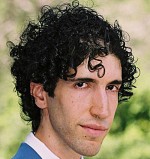Column Name
Title
Setting: The Improvisation Intensive Project, Royal Conservatoire, The Hague, February 2013.
Body
“Play two movements that are different from one another,” the esteemed Swiss professor instructed, and the 10 international instrumentalists and singers—who were meeting on stage for the first time—started to make music together. They proceeded to create a 20-minute instant composition filled with magical moments, colorful timbres, and amazing ensemble interaction.
“I want to improvise a Schubert-like song,” a soprano told me in my Monday morning workshop. I initially thought this was too ambitious—we had never worked together before and had little time now, but after she improvised several phrases with my piano accompaniment, I invited her to my public workshop. And there, just hours later, to everyone’s astonishment, she improvised a beautiful song in German—not her native language—on stage.
The Improvisation Intensive Project—part of the European Union’s Erasmus student exchange program—brings together improvisation artists, teachers, and students from different countries to share ideas and develop improvisation pedagogy. This year’s participants (this was the second year of the three-year program) came from the Paris Conservatoire, Guildhall School in London, Estonian Academy in Tallinn, E.S.M.U.C. in Barcelona, and eight other European conservatories. I was the only non-European representative.
Some of the participating institutions offer a master’s degree in improvisation or have full-fledged centers for improvisation. Focusing on either historical or contemporary musical styles, there is a wide range of existing approaches, including interdisciplinary collaborations with other performing arts. Some of the students graduating from these programs are employed by theaters as artistic directors of multimedia performances thanks to their creative versatility and ability to work fast. Others form chamber ensembles that mix standard repertoire with fresh improvisations. Those who have traditional careers as soloists, conductors, or orchestral players use their invaluable improvisational experience to make music with greater authority. And the many who become improvisation teachers are increasingly in demand in Europe on all levels of music education.
It was a great honor to be the only non-European at the conference, and during my stay, I improvised in concert a half-hour, four-movement piano sonata on a theme given to me on the spot by the audience, gave two public lecture-workshops, improvised with my colleagues, and coached international student ensembles. In particular, the organizers asked me to present the pedagogical approach I use in the improvisation courses I teach at Juilliard, Curtis, and Mannes.
How does one teach improvisation? This question surfaced when I taught my first semester-long improvisation class, in 2006 at Mannes; it was the subject of my doctoral research and it has stayed with me through seven years of exploring creativity with countless instrumentalists and singers. This year, Juilliard has given me an opportunity to tackle the question from various angles. The yearlong Pre-College Piano Improvisation class that I teach, initiated by artistic director Veda Kaplinsky as the first of its kind, will have its final concert on May 11 with music created on stage by the participating students. In the College Division, there are several theory and piano department workshops this year, organized respectively by Edward Klorman (B.M. ’04, Graduate Diploma ’08, viola), the chair of the Music Theory and Analysis Department, and piano faculty member Julian Martin.
While each course in improvisation is different, some common results emerge, student feedback reveals. Learning to improvise can help us deepen our compositional understanding of written music, bring us closer to our instrument musically and technically, build our confidence as musicians and reduce stage fright, improve social and ensemble skills, initiate interdisciplinary collaborations and outreach activities, and develop leadership and entrepreneurial qualities. According to a research done at the Sibelius Academy in Helsinki and presented during the aforementioned improvisation workshop in The Hague, musicians who learned to improvise reported having gained increased creativity, confidence, musicianship and teaching skills, feeling of mutual acceptance and supportive community, renewed feelings of joy when making music, a positive change in their values, and motivation to learn new things in life.
Considering all this, why isn’t improvisation more widespread in music education and in public concerts that involve classically trained musicians? We improvise every time we have a conversation. Imagine learning a language only by reading, memorizing, and reciting written texts without being able to speak even a word in that language. Why should music be the only language learned in such a way?
This question has been with me since I started pursuing degrees in performance and composition. As a student, I missed a natural connection between those apparently contrasting activities. But following two years of individual improvisation lessons at Mannes with Juilliard faculty member Carl Schachter, I started improvising in my solo recitals. Later, I continued in other ways: interdisciplinary performances involving improvisation with actors, singers, and dancers; conducting orchestral improvisations; duo improvisations with colleagues on various instruments; when I started teaching, also organizing annual concerts of student improvisations.
Improvisation is perhaps the most widely practiced type of music making around the world. It has been part of music history since the very beginning, and remains a vital force across cultures. Music has the magical power to break barriers between peoples, and improvisation can create that magic. Uniting composition and performance, in many musical traditions it is considered the pinnacle of artistic creation. Even outside of music its role is no less important, stimulating creativity and personal expression in our daily lives. By its nature, improvisation is a path for the human spirit to shine forth. As we continue to learn, teach, and play music, can we relearn to improvise and shed a new light on our already rich musical culture?





